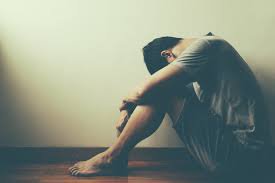Chronic loneliness: What to know about causes, symptoms and treatments
Chronic loneliness is a term to describe loneliness experienced over a long period of time. While loneliness and chronic loneliness are not specific mental health conditions, they can still affect your mental health and general health.
1. Chronic loneliness
Loneliness describes the negative feelings that can occur when your social connection needs are not being met. In fact, alone time can help you relax and recharge. However, loneliness and isolation are not the same thing at all. When you're enjoying solitude, chances are you won't feel negatively isolated or crave contact with other people. Isolation and loneliness often go hand in hand, and both can affect not only emotional health, but overall well-being.
Chronic loneliness is loneliness experienced for a long time and it can have a number of effects on general health.
2. Causes of Chronic Loneliness
Some of the reasons that can lead you to loneliness include:
Changing schools or jobs Working from home Moving to a new city Ending a relationship Living alone for the first time When you adjust yourself With these new circumstances, feelings of loneliness may pass, but sometimes they persist. Feeling lonely isn't always easy to talk about, and if you're having a hard time reaching out to others, you may feel even more alone. A lack of meaningful connections also contributes to loneliness, which is why you can feel lonely even if you have a wide social network.
Physical or mental health problems that occur together can also increase the risk of loneliness. Because these worries can be isolated, and difficult to explain how you feel. Sometimes social activities require too much mental or physical energy, and you may have to cancel more plans than you keep.

Các vấn đề sức khỏe thể chất hoặc tinh thần diễn ra cùng nhau cũng có thể làm tăng nguy cơ cô đơn
3. Symptoms of Chronic Loneliness
If you're lonely, you may feel sad, empty, or as if you're missing something important when taking time to yourself. Chronic loneliness may also be associated with the following symptoms: Reduced energy; feeling foggy or unable to focus; insomnia, disrupted sleep, or other sleep problems; decreased appetite; feelings of lack of confidence, hopelessness, or worthlessness; tendency to get sick often; body ache ; feeling anxious or restless; increased procurement; increased desire to watch shows or movies; craving physical warmth, such as hot drinks, a bath, or warm clothing and blankets.
4. Diagnosis of Chronic Loneliness
Loneliness, even chronic loneliness, is not a specific mental health condition. However, experts have recognized the ways that loneliness can affect your physical and mental health. If you're feeling lonely and experiencing unexplained symptoms, such as the loneliness signs above, talk to a mental health professional about ways to improve.
A therapist can help you figure out any possible mental health causes of your symptoms. Although there is no diagnosis of loneliness, therapy can help you access resources and can be helpful. A therapist can also teach you tips for dealing with the effects of loneliness and help you discover ways to make positive changes.

Cô đơn ảnh hưởng đến sức khỏe thể chất và tinh thần của bạn
5. Complications of Chronic Loneliness
Loneliness and isolation can have far-reaching effects on general health, whether they occur together or independently.
Chronic illness
A meta-analysis of 40 studies on social isolation and loneliness has found evidence linking lonely states with an increased risk of premature death, health problems, and health problems. Cardiovascular and mental health worse.
Sleep quality
The results of a study that looked at more than 2,000 twins show that young people who feel lonely tend to have lower quality of sleep. The results of the studies also found evidence that experiencing violence can exacerbate feelings of loneliness.
A five-year study of 215 adults found a link between loneliness and poor sleep quality, which suggests that lower sleep quality can cause difficulty functioning during the day. .
Depression
A study that looked at the link between loneliness and social isolation in 1,116 twins found evidence that lonely people are more likely to suffer from depression.
According to a review of 88 studies on loneliness and depression, loneliness has a “moderately significant” impact on depression risk.
Stress
Results of a study that looked at 8,382 adults aged 65 and over showed that both loneliness and depression increased the risk of cognitive decline.
6. Chronic loneliness treatment
While loneliness may not be a diagnosable condition, you can still get help to deal with feelings of loneliness. To help you find the best way to deal with loneliness, you should look at the possible causes. For example: When you may have trouble getting to know people, even if they new friends or potential romantic partners. Or you may have just moved to a new city and missed your old haunts.
In all cases, you should talk to a therapist who can help you find ways to change. If you are facing physical or mental health issues that isolate you or exacerbate feelings of loneliness, it can be helpful to get help with these issues by helping You reach out to others more easily.
If you find yourself feeling lonely without really knowing why, you may find therapy helps narrow down the possible causes. Coping with feelings of loneliness can be difficult if you're not sure what's going on. A professional can help you examine and find situations in your life that may be creating these feelings.
Special loneliness persistent loneliness is not a mental health condition with a clearly recommended treatment. So you may be wondering how to deal with it. If you are shy, introverted, or find it difficult to meet new people, overcoming loneliness can be a big challenge for you. It may take you a while, but you could very well build new relationships or deepen existing connections in your life. If you're not sure what you can do to relieve your loneliness, consider reaching out to a therapist who can help and support.
Psychological Clinic - Times City International General Hospital is one of the leading prestigious addresses in the treatment of psychological and mental health problems. The medical team at the clinic are highly specialized, many of whom are lecturers in psychiatry at Hanoi Medical University, capable of implementing psychological tests, in-depth psychotherapy, and providing support. effective aid in the treatment of diseases.
The clinic has a system of modern equipment, leading facilities in the country will bring the best service to patients, increase treatment efficiency.
Để đặt lịch khám tại viện, Quý khách vui lòng bấm số HOTLINE hoặc đặt lịch trực tiếp TẠI ĐÂY. Tải và đặt lịch khám tự động trên ứng dụng MyVinmec để quản lý, theo dõi lịch và đặt hẹn mọi lúc mọi nơi ngay trên ứng dụng.
Reference source: healthline.com
Bài viết này được viết cho người đọc tại Sài Gòn, Hà Nội, Hồ Chí Minh, Phú Quốc, Nha Trang, Hạ Long, Hải Phòng, Đà Nẵng.






